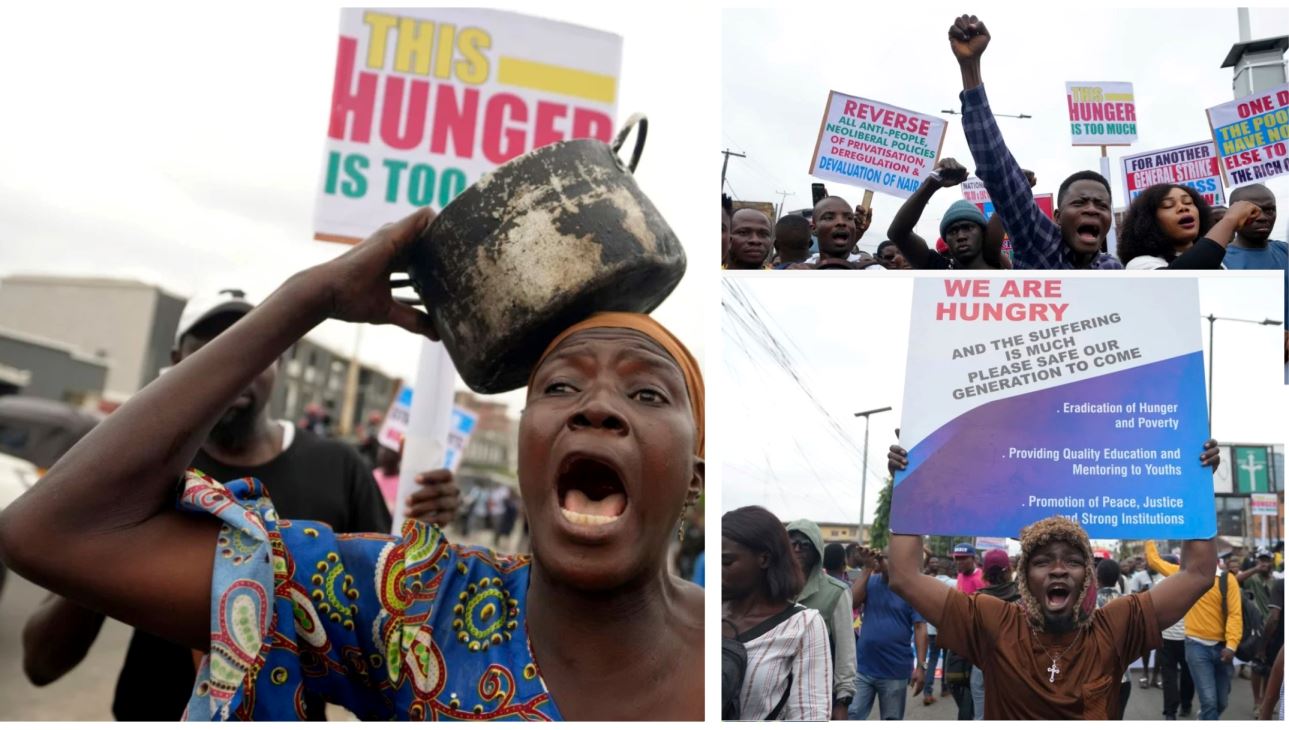
The ongoing cost-of-living protests in Nigeria entered their second day with increasing participation and heightened tensions. Thousands of Nigerians are demonstrating against soaring prices and economic mismanagement, leading to clashes with security forces and urgent calls for governmental intervention.
In Minna, northern Nigeria, six protesters were killed as police attempted to clear roadblocks. Another fatality occurred in Kano amid confrontations between demonstrators and law enforcement. The capital city, Abuja, also witnessed violent dispersal methods, including tear gas, leading to widespread condemnation from human rights groups.
These protests, scheduled for the first ten days of August, are a reaction to the severe economic conditions plaguing Africa’s most populous nation. Rising fuel prices, food inflation, increased electricity tariffs, and the depreciation of the naira have culminated in one of the most severe economic crises in recent memory.
For weeks, Nigerian officials have tried to quell the unrest through warnings, concessions, and threats, drawing criticism from civil society groups. Despite these efforts, the protests have proceeded, driven by widespread dissatisfaction with the government’s handling of the economy.
Lagos, usually bustling with activity, was notably subdued, with many businesses shuttered and a heavy police and military presence. In Ketu, a commercial hub in Lagos, about a thousand demonstrators defied police orders to gather, demanding immediate solutions. Ibrahim Suleiman, a trader, carried a placard reading “end bad governance” and “hunger is killing us.” He highlighted the dire situation many face, stating, “My children don’t go to school because we can’t afford it. We’re hungry. A can of beans now costs 2,200 naira ($1.32) and garri is 4,000 naira.”
Since the new government took office in May 2023, a series of economic reforms have been implemented, including the removal of a controversial fuel subsidy and the loosening of currency controls. While these measures have been lauded by international financial institutions like the IMF and World Bank, their impact on ordinary Nigerians has been devastating, exacerbating poverty and increasing rates of malnutrition and food insecurity.
Inflation has surged to 34%, the highest in nearly 30 years, with food inflation hitting 40%. Additionally, rising insecurity in northwest and central Nigeria has displaced many farmers, further driving up food prices.
In response to the crisis, the government has distributed food aid, known locally as “palliatives,” such as bags of rice to various communities. However, these efforts have been criticized for their inefficiency and limited reach. Samuel Ali, a 29-year-old protester in Lagos, expressed the widespread frustration: “We don’t need palliatives, we’re not beggars. We want good governance and jobs. Let us work and earn our own money. Rice spoils. Garri spoils. We don’t want your food; we want a better country – enough is enough!”
On Monday, President Bola Tinubu signed a new minimum wage law, doubling it to 70,000 naira ($42) after prolonged negotiations with labor unions. However, with many Nigerians either self-employed or jobless, and several states indicating they cannot afford the wage increase, the general consensus is that this measure is insufficient.
As the protests continue, the nation and the international community watch closely, hoping for a resolution that will alleviate the hardships faced by Nigeria’s citizens.


